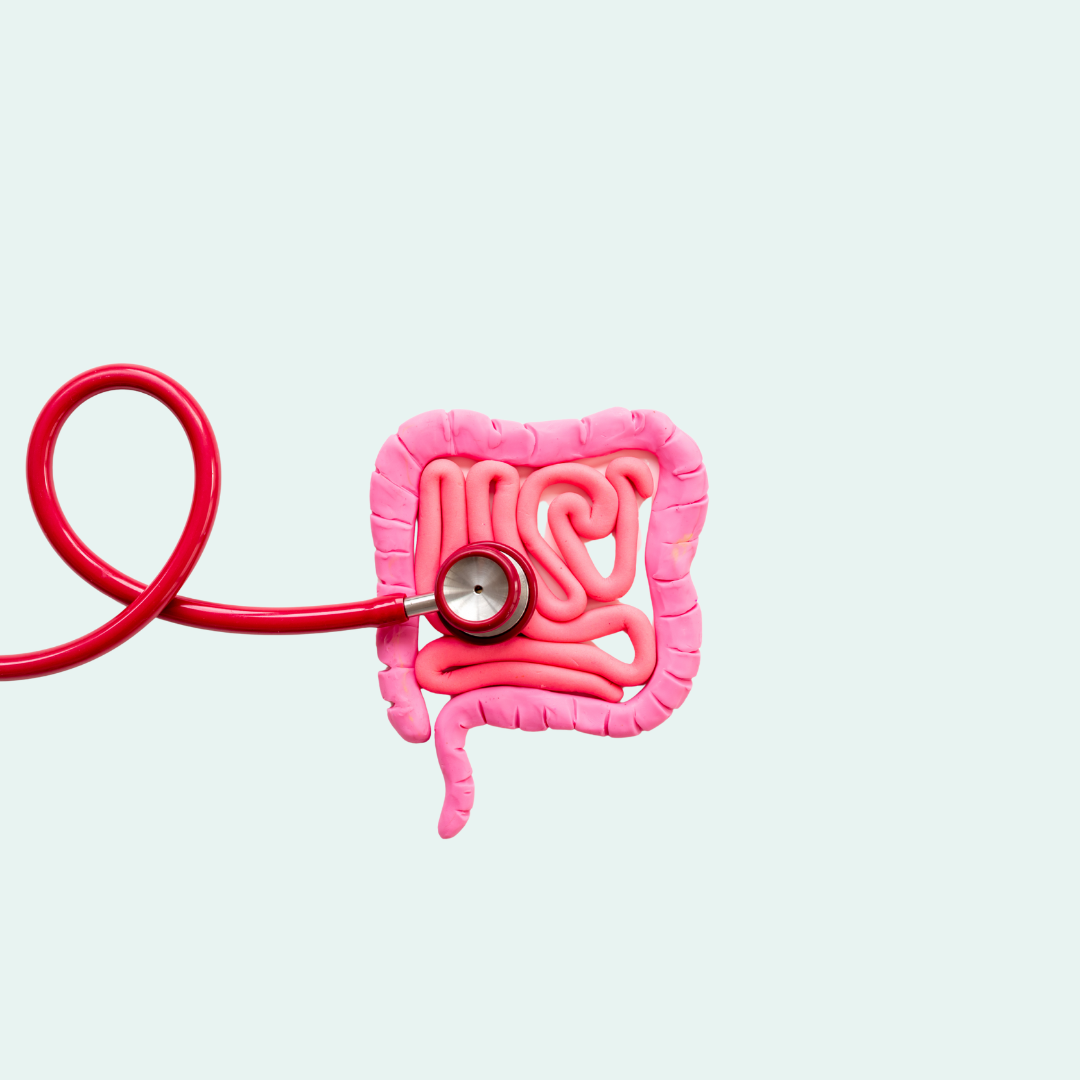I bet your doctor never told you that your gut could be the source of your thyroid problem? Yep me neither. It took me years to figure it out on my own, so let me save you some time addressing the root cause of thyroid imbalance.
First, let’s talk about the gut-what is it, where is it really, and how in the world does it affect my thyroid?
So What Exactly is Your Gut?
The “gut” could include all parts of the digestive system from the mouth to the tailpipe, but usually, the gut refers to the intestines. The small intestine absorbs food; the large intestine harbors beneficial bacteria, which help to further digest food, produce vitamins, and support the immune system. 70% of what we think of as the “immune system” is found in specialized tissue called GALT in the intestines. Additionally, thyroid hormone is activated or converted partially in the gut, so when we say the gut is vital to optimal health, this is why—the gut is literally connected to all our other body systems, and a breakdown in the delicate intestinal lining has a broad ripple effect on pretty much all other areas of the body, including the thyroid. And the kicker is that when a new imbalance is created, it worsens or perpetuates thyroid imbalance.
For example, if bad bacteria overgrow in the gut (as a result of antibiotic use and/or a diet consisting of moderate to high sugar and alcohol), not only does the thyroid suffer as a result of poor absorption and leaky gut, but then a hypothyroid condition can then lead to constipation, poor bile flow from the gallbladder, or low stomach acid (hypochlorhydria). And the vicious cycle continues: low thyroid function makes gut-healing difficult, and a leaky gut suppresses thyroid function.
Wait, Do I Need Medication for My Thyroid?
Yes, you may need medicine for the thyroid if the damage has been done or you didn’t know all of this before starting a prescription. That is okay! I have been on medicine at three different times in my life (which I hated), but I knew it just meant that I needed to keep working on the root cause if I was ever to be truly well. As I write this, I have been medication-free for about three years, and as long as I don’t have any more babies (definitely not in the plan!) or let my stress get out of control, I think I’m in the clear! And even if you have to keep taking a prescription forever, that’s okay too, but remember to check in with your other hormones (especially the adrenals!) and be kind to your gut as there may be ongoing sensitivity to the imbalance in those areas. Work with a knowledgeable practitioner who understands these relationships to make sure thyroid medication isn’t covering up underlying issues. Remember, medication is an artificial substitute—it doesn’t actually fix anything.
How Does Diet Relate to Thyroid Imbalance?
Of course, nutrition is extremely important as well in addressing thyroid imbalance, especially Hashimoto’s (autoimmune hypothyroid). If you have been told you have low thyroid function but don’t know if you’ve been tested for Hashimoto’s, ask your doctor to test your antibodies or find a new doctor who will.
Haven’t heard of Hashimoto’s before? I got you! Click here for more information on Hashimoto’s and a Healthy Thyroid.
The same nutrition plan may not work for everyone, but there are some common nutrition themes to consider with thyroid disease:
- Digestive issues: constipation, nausea -esp after eating meat or high-fat or fried foods, and fatigue after eating protein might be a sign of thyroid disease. Balanced meals with fiber and healthy fats are very important in mitigating these issues, but sometimes supplements are needed at least temporarily until thyroid function is stable. Don’t assume removing a food is the long-term answer—dig deeper and fix the gut so that you can maintain a widely varied diet.
- Carbs: Several studies have shown that thyroid hormone levels decline with a ketogenic or carb-restricted diet. Instead of extreme diets, first consider high-fiber, whole-food carbs like starchy vegetables and fruit (legumes and grains too if you can tolerate) to balance blood sugar and support a healthy weight without triggering inflammation or suppressing thyroid function.
- Gluten may not be your friend: I’m not saying everyone should be gluten-free, but if thyroid antibodies are elevated such, as in the case of Hashimoto’s, gluten may be a partial contributor. Several studies have highlighted this relationship, and I have seen many clients reduce their Hashimoto’s antibodies by removing gluten from the diet. There are also studies of gallbladder dysfunction related to non-celiac gluten sensitivity.
- Other Food Sensitivities: soy and canola are usually no Bueno for Hashimoto’s sufferers. Like gluten, they usually aggravate inflammation and may suppress thyroid function.
Next Step: Start Simple
There are many diet options for Hashimoto’s and hypothyroid sufferers. I recommend starting simple with the above suggestions first, and then if inflammation doesn’t respond, a more aggressive short-term approach may be warranted. And in the meantime, don’t stop chasing down the root cause of any gut imbalance because it does matter, and it impacts every other aspect of health.
Need extra help with starting simple? Shoot me a message or check out @carolinafunctionalnutrition instagram for more great tips on achieving a healthy, happy, and functional thyroid!
Recent Blog Posts
Share this post!
About the Author
Rhya Pachin is a licensed dietitian nutritionist who employs an "integrative" approach to support overall health rather than addressing just one symptom. As a certified LEAP therapist, she designs and supervises custom elimination diets. Her focus areas include gastrointestinal conditions like IBS and IBD, autoimmune diseases such as rheumatoid arthritis and Hashimoto's, persistent weight issues, food sensitivities, and chronic inflammatory conditions in both adults and children.





